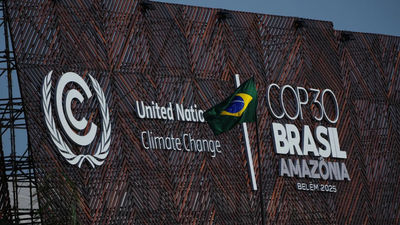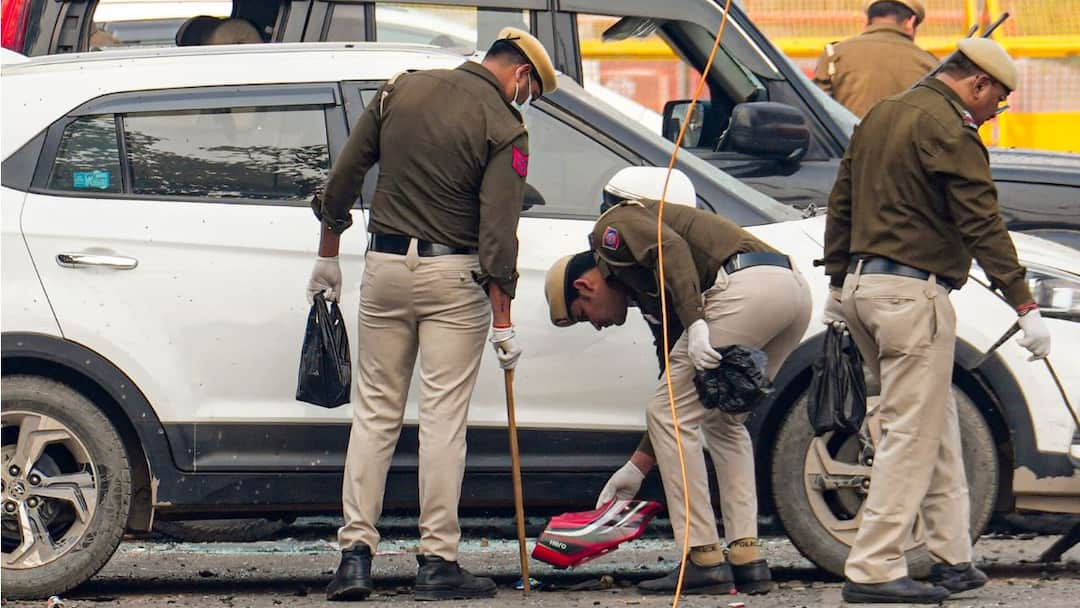As the World Climate Conference, COP30, is underway in Belem, Brazil, the disastrous consequences of environmental crimes are visible across the Amazon. This highlights an oft-overlooked fact in the fight to combat a warming world: Tackling organized crime is also key to safeguarding the climate. In the Amazon, criminal groups like the Comando Vermelho (CV), or Red Command in English, control the illegal trade in gold, rainforest wood and drugs.”The CV is the most important organization involved in illegal mining and also illegal deforestation and drug trafficking,” explained Rodrigo Ghiringhelli, professor at the Pontifical Catholic University (PUC) of Rio Grande do Sul and member of the Brazilian Forum for Public Security (FBSP).
The rainforest as a legal vacuum
A study published in October by the Brazilian intelligence service Abin and the Forum for Public Security concludes that drug trafficking, illegal gold mining, and human trafficking pose the greatest threats to the population and environment in the region.The study highlights how the cartels’ lucrative business is abetted by several factors. “These include the rising price of gold, the low level of government presence in the Amazon region, and the permeability of the borders with neighboring countries, which include Brazil, Colombia, Peru, Venezuela, Bolivia, Ecuador, Suriname and Guyana.”
The geographic spread of organized crime
Back in December 2024, the Forum for Public Safety pointed out how cartel power was on the rise in its study,Violence in the Amazon.”The scenario is worrying,” it said. “The struggle for control of territories has caused murders and other crimes, as well as irreparable damage.””Control of legal and illegal economic activities in the Amazon region is no longer just a public safety issue, but also an obstacle to sustainable development.”According to the FBSP, the spread of criminal gangs from southeastern Brazil and their alliances with local groups is progressing at an “astonishing rate.” In the Amazon, criminal factions are present in at least 260 municipalities, half of which are controlled by the CV.
Energy suppliers under threat
The Amazon city of Belem is also largely controlled by the criminal group CV. The implications of this are revealed in a recent investigation by the investigative website Intercept_Brasil. According to the report, shortly before the start of COP30, the CV ordered the suspension of expansion work on a substation that supplies the city with electricity every day from 3 p.m. onwards.According to Intercept_Brasil, minister of mines and energy, Alexandre Silveira, subsequently called for security measures to be stepped up.This is not the first time something like this has happened. According to media reports, the local energy company, Belem Transmissora de Energia, has been the target of threats and intimidation since May 2025.
Protection money and confidentiality
In some neighborhoods in Belem, residents have to abide by the rules of the “bosses,” a local told Brazilian daily newspaper Folha de S. Paulo. Many business owners pay protection money while people have to obey orders circulated via WhatsApp and adhere to a strict “code of silence.”After the massacre in a favela in Rio de Janeiro on October 29, many people in Belem feared retaliation. During the police raid against the Comando Vermelho, over 120 people were killed, many of them with connections to the criminal gang. A few days after the massacre, President Luiz Inacio Lula da Silva deployed the armed forces during the climate conference in Belem. The military “Operation to Guarantee Law and Order” (Garantia da Lei e da Ordem, GLO) was also used at other major events such as the G20 summit in November 2024 and the BRICS summit in July this year, both of which took place in Rio.
How the CV pushed northward in Brazil
The rapid spread of the Comando Vermelho from Rio to northern Brazil is indirectly linked to major sporting events. In order to curb crime during the World Cup and the Olympic and Paralympic Games in 2014 and 2016, a new security concept was introduced in Rio: the so-called Peace Police (UPP, Unidade de policia pacificadora).The UPPs are widely seen as a success. The permanent presence of the police in the favelas led to criminal factions leaving the neighborhoods, state institutions such as schools and kindergartens functioning again, and the population no longer being terrorized by rival gangs. However, according to the Brazilian intelligence service Abin, this successful displacement led to drug gangs moving to other regions of the country.”When the leaders were forced to leave Rio, they looked for other places where they could operate,” Abin coordinator Pedro de Souza Mesquita told the Brazilian press on November 7. “This process began in 2013 and reached its peak in 2024.”
Prisoners established the CV while behind bars
The CV was founded over 40 years ago, during the Brazilian military dictatorship, which lasted from 1964 to 1989.It began when political prisoners and common criminals joined forces in the notorious Candido Mendes prison on an island near Rio de Janeiro. The aim was to prevent crime among inmates and improve prison conditions.In the meantime, the group has risen to become one of the most powerful criminal syndicates in Brazil and throughout Latin America.After the massacre in Rio in October, political pressure has increased: on November 4, Brazil’s Congress set up a parliamentary commission of inquiry to uncover the network of organized crime and its infiltration into political and social institutions.According to lawyer Aiala Coutovon of the State University of Para, the CV already has all the characteristics of an international drug cartel: “They control the transport routes of the international cocaine trade and have diversified their illegal activities.” Go to Source



